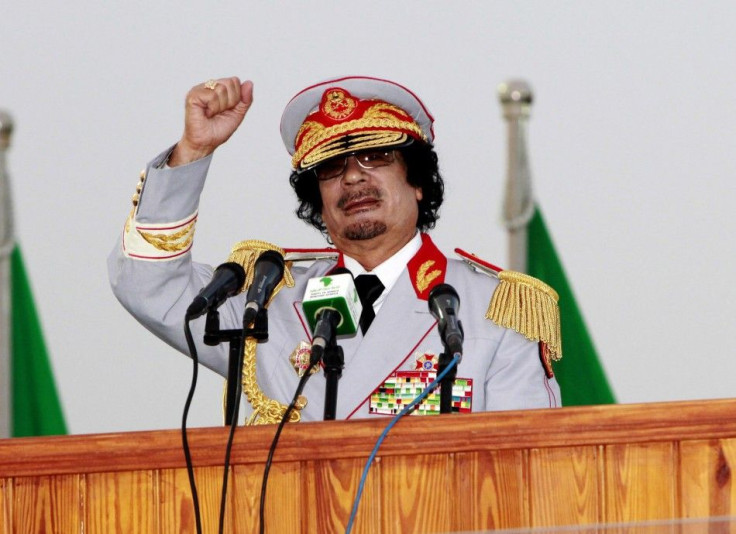Gadhafi Dead: Is Libya Celebrating or Mourning? Has He Become a Martyr?

The death of deposed autocrat Muammar Gaddafi has brought an end to a regime that ruled the country for 42 years. Though the pictures of celebration have been flashed across all media channels, doubts still remain on whether the whole of Libya is rejoicing his death.
Considering the changes he did bring to Libya, the question remains to be answered on whether he became a martyr. At least, it can be seen that there are many who have allegiance to the longtime Libyan leader.
All through the current civil war, Libya had witnessed several demonstrations in which thousands of supporters of Gadhafi marched in the streets of Tripoli and other cities. What has happened to all these supporters? Are they mourning the death of their leader?
Certainly, they have reasons to mourn because they felt they were safe to live in the country under his regime. For them, he was the savior who changed the country from one of the world's poorest nations to a wealthy state.
This was not the situation before he came to power. It was in 1959 that significant oil reserves were discovered in Libya following which petroleum sales generated plenty of income. Thus, oil reserves become the source of revenue for the government. However, a large section of the people were in poverty while wealth remained with a selected few who were related to King Idris.
Following the rising unrest on Sept. 1, 1969, the Libyan monarchy was abolished when a group of about 70 young army officers seized control of the government. Gaddafi, who led the group of army officers, thus became the de facto leader of the country. The king had fled the country and the Libyan Revolutionary Command Council (RCC), headed by Gaddafi, abolished the constitution and proclaimed the new Libyan Arab Republic with the motto freedom, socialism, and unity.
Once in power, the RCC government commenced a course of action to direct funds headed to provide education, healthcare and housing for each and every citizen. Though these reforms were not entirely effective, they had their impact. First of it was notable since it made public education in the country free. Primary education was made compulsory for both boys and girls. Medical care was also available to the public at no cost. At the same time, providing housing for all was a task the RCC government had not been able to complete.
Under his regime there were many who received unemployment pension up to $500. But once the rebels took over, this was stopped. Is it an indication of the tough days ahead under the rule of the rebels?
Gadhafi announced a major transformation plan in 1975 - the Five-Year Economic and Social Transformation Plan. It was aimed at pumping in US$20 billion towards the development of a broad range of economic activities that could keep on generating incomes when petroleum reserves of the country had been drained.
Certainly throughout his regime, he followed the policy of oppression. He had to protect his position against resistances and coup attempts, which surfaced from both the military wings as well as from the civil society. He responded to these dangers with a two-pronged tactics which consisted of brutal repression on one hand and preserving a careful balance of power between the forces in the country on the other hand.
He could prolong his regime to a great extent because of his ability to balance the influence of various tribes of Libya. He earned support by nurturing particular tribes and regions, offering generous government benefits and jobs. For them, Gadhafi has become a martyr. For them, he was the reason to live peacefully with assurance of security in their land.
With his death the most important test for the interim National Transitional Council will be forging a new democratic system. If this does not happen, it is possible that Gadhafi will be seen as an embodiment of sacrifice and his sacrifice would become a single factor that could bring together the tribes to take up violent acts against the government.
Meanwhile, the NTC has to take care of the fact that pro-Gadhafi forces are still present in the country, which will certainly need to travel a long way to traverse the shadows of his long regime. For now, it can be certain that there will be many in Libya who carry proudly in their minds images of Moammar Gadhafi's green flags.
© Copyright IBTimes 2025. All rights reserved.




















